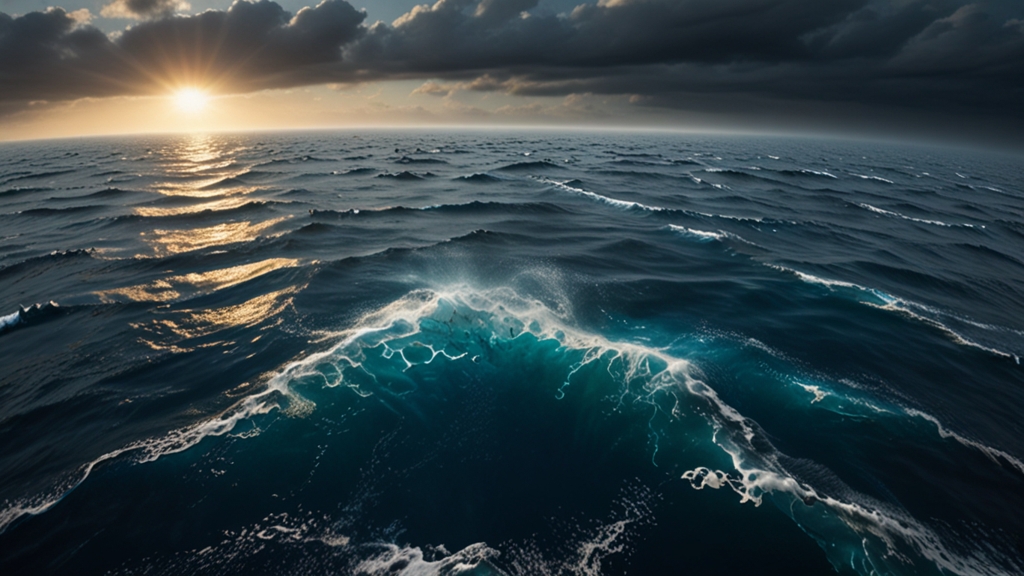Introduction
Climate change is an ever-growing concern, with significant impacts on our planet's ecosystems. While much attention is given to the atmosphere, arguably, the changes occurring in our oceans are just as critical. As we delve deeper into understanding these transformations, it becomes evident that our marine environments are facing unprecedented challenges.
Rising Sea Temperatures
One of the most noticeable effects of climate change on our oceans is the rise in sea temperatures. Over the past century, the average temperature of the upper ocean has warmed by about 0.13°F per decade. This seemingly small increase can have profound impacts on marine ecosystems.
"The thermal stress resulting from warmer waters is causing widespread coral bleaching, which occurs when corals expel the algae (zooxanthellae) that live in their tissues. This not only diminishes the stunning colors of coral reefs but also threatens the survival of these crucial marine habitats."
Marine species that rely on specific temperature ranges to thrive are being forced to migrate to cooler waters, disrupting existing ecosystems. This movement can lead to a decrease in biodiversity and the collapse of established marine communities.
Ocean Acidification
Another significant impact is ocean acidification, a direct consequence of increased carbon dioxide (CO2) levels in the atmosphere. Since the Industrial Revolution, the world's oceans have absorbed approximately 30% of CO2 emissions produced by human activities. This absorption leads to chemical reactions that reduce the pH of seawater, making it more acidic.
"The increasing acidity of the oceans can have deleterious effects on marine organisms, particularly those with calcium carbonate shells and skeletons, such as mollusks, corals, and certain plankton species. These organisms find it more challenging to build and maintain their shells, thus threatening their survival and the marine food web they support."
Changing Ocean Currents
Climate change is also affecting the patterns and strength of ocean currents. These currents play a crucial role in regulating the Earth's climate by distributing heat around the globe. Changes in these currents can lead to significant alterations in weather patterns and marine ecosystems.
For instance, the Atlantic Meridional Overturning Circulation (AMOC), a critical component of Earth's climate system, is showing signs of slowing down. This slowdown could have dramatic impacts, including more severe winters in Europe and changes in tropical rain belts. Additionally, changes in these currents can influence the distribution and abundance of marine species, with cascading effects throughout the food web.
Sea-Level Rise
Melting polar ice and thermal expansion of seawater due to increasing temperatures contribute to rising sea levels. This rise poses a significant threat to coastal ecosystems and human communities. Wetlands, mangroves, and coral reefs, which provide essential services such as storm protection and habitat for marine life, are particularly vulnerable.
"According to the Intergovernmental Panel on Climate Change (IPCC), global sea levels could rise by 1 to 3 feet by the year 2100, depending on future carbon emissions. Such changes could displace millions of people living in coastal areas and lead to the loss of vital coastal habitats."
Conclusion
Climate change's impact on our oceans is multifaceted and complex, affecting everything from temperature and acidity to currents and sea levels. Understanding and addressing these changes is crucial for preserving marine biodiversity and ensuring the health of our planet. By taking bold actions to mitigate climate change, we can protect our oceans and the myriad species they support for future generations.
Our oceans are a critical part of the Earth's life support system. Protecting them from the adverse effects of climate change is not just an environmental necessity but a moral imperative for the well-being of all life on Earth.










